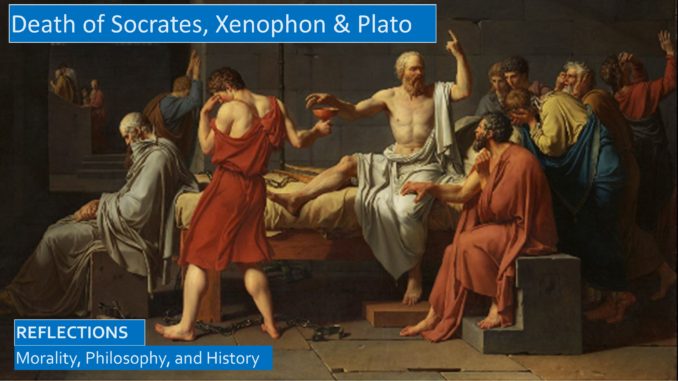
Plato tells us that two-thirds of the five hundred and one jurors were necessary to find Socrates guilty of the charges brought before him, and he was convicted by a narrow margin of thirty votes. Thirty fewer votes and millions of scholars and schoolboys would not have been able to debate for millennia why the Athenians executed Socrates. If only they knew.
Amazingly, more jurors voted to execute the gadfly than voted for his conviction. How can this be? The Apology has a few clues for this impenetrable Delphic riddle.
Socrates Blog 1 http://www.seekingvirtueandwisdom.com/trial-of-socrates-in-apology-and-crito-blog-1/
When we converted our blogs on the trial and execution of Socrates, our thinking evolved, please view a later blog on this topic:
http://www.seekingvirtueandwisdom.com/pondering-the-death-of-socrates-in-xenophon-plato-and-aristophanes/
Please view our YouTube video at: https://youtu.be/Mip1vgRKH1E
The first clue may be found in the plea of Socrates to the jury, “Athenians, I am not going to argue for my own sake, as you may think, but for yours, so you may not sin against the god by condemning me, who am his gift to you.” Socrates, God’s gift to Athens. Perhaps Socrates was God’s gift to the Athenians, perhaps you can say that of all Athenians, but Socrates did not say that of all Athenians, only himself.
We have further clues. Socrates continues, “If you kill me you will not find a substitute, for I am a gadfly, given to the state by god,” a god-given gadfly, how lucky you are, you Athenians, for the “state is a great and noble steed who is tardy in his motions owing to his very size, and requires to be stirred into life. I am that gadfly which god has attached to the state, and all day long and in all places I am always fastening upon you, arousing and persuading and reproaching you. You will not easily find another like me, and therefore I would advise you to spare me.” Who would dare swat the gadfly so he pesters the steed no more? How sweet is the sting of a yellow fly at dusk!
We have further clues as to why the jurors vote to execute Socrates. In the sentencing portion of the trial Socrates suggests an alternate punishment, “What would be a reward suitable to a poor man who is your benefactor, and who desires leisure in order to instruct you. There can be no reward so fitting as free dinner for several years in the Prytaneum,” which is only provided to winners at the Olympic games, “a reward which he deserves far more than the winning athlete in the horse of chariot race, whether the chariots were drawn by two horses or many.” But then on the next page he backpedals and says his friends will pay a fine of thirty large coins, but that offer is scarcely heard.
We have further clues. Socrates declares, “Perhaps they may be someone who is offended by me, when he recalls how he himself on a similar, or even a less serious occasion, prayed and entreated the judges with many tears, and how he produced his children in court, which was a moving spectacle, together with a host of relations and friends; whereas I, who am probably in danger of my life, will do none of these things.” Socrates goes on and on about how he is not like most men, how he asked his family to stay home so the jurors will not pity him, that this sort of show is ridiculous, that he does not want the Athenians to pity him, that he refuses to make a doleful scene.[1]
In the Crito, which is a dialogue shortly before the death of Socrates, Crito tells Socrates that he can bribe the jailer so he can escape to Thebes or another city, and Socrates challenges him to demonstrate that this would be a virtuous. The argument Crito offers is not a compelling reason to bribe the jailer, but perhaps it would have been a compelling argument in the trial and sentencing stage.
Crito argues, “I do not think you are at all justified in betraying your own life when you might be saved; in acting thus you are playing into the hands of your enemies, who are hurrying you to your destruction. Further, you are deserting your children, denying them the education you could offer them; instead you will leave them to their wits, leave them to the usual fate of orphans. No man should bring children into the world who is unwilling to persevere to the end in their nurture and education.”
Professor Sugrue denigrates Crito as not being all too bright, but I am not too sure of this, the only fault is the argument is offered too late to possibly influence Socrates’ preparation for his trial.[2] Crito continues, “But you appear to be choosing the easier part, not the better or manlier part, which would have been more becoming to one who professes to care for virtue in all his actions, like yourself.” “This trial should have never taken place, or might have been managed differently.”
Perhaps the mythical Socrates has no need for humility, being God’s gadfly gift to Athens, but it is difficult to argue why the earthly Socrates should not have brought his wife and three boys to sit in the stands and say to the jurors, I refuse to whine and beg and humiliate myself with tears, for I have nothing deserving wrong, and certainly done nothing deserving of death, but I would like to point out my wife and young sons who are sitting over there to remind you that one very real consequence if you sentence me to death is you will deny my family their husband and father in the few years I have left in my life.
This plea can be made with dignity, I agree with Crito, not making this plea is hubris on the part of Socrates that needlessly condemns him to death. This reminds me of the story of the two American GI’s captured and interrogated by the Nazis soon after D-Day. The first GI haughtily proclaims that the Geneva Convention says he only need to tell them his name, rank, and serial number, so the Nazis shoot him. The other GI who lives is more cooperative, he tells them his name, rank, and serial number, plus eagerly tells them everything he knows that they know already.
But Socrates was right that Crito’s argument was weak on the day after the sentencing. There were practical difficulties, Socrates was already seventy years old, and Thebes or any other democratic city-state would be tempted to accuse him of corrupting their youth as well. The dialogue does not mention it, but he may not have had any guest-host relationships with families in the other cities since he rarely left Athens. Since Socrates taught his students that they should respect the laws of the city, he would lose respect if he himself ignored the laws of the city, even when he has been falsely condemned of a crime he did not commit, and fled the city like a coward. It would be better to stay and die the good death that all Greeks respect.[3]
Socrates does not fear death. Socrates looks forward to conversing with any “ancient hero who has suffered death through an unjust judgment.” “I can continue my search into true and false knowledge in the next world as I have searched in this world, and I shall find out who is wise, and who pretends to be wise, and is not.”
In the end of his speech to the jurors who will decide whether he will live or die, he says, “Judges, be of good cheer about death, and know for certain that no evil can happen to a good man, either in life or after death.” Socrates is forgiving. “I am not angry with my condemners, or with my accusers; they have done me no harm. Although the did not mean to do me any good; for this I gently blame them.”[4]
[1] Plato, “Apology of Socrates,” in the Essential Dialogues of Plato, translated by Benjamin Jowett (New York: Barnes and Nobles Classics, 2005, first published 1871), pp.287-294.
[2] Michael Sugrue, “Tragedy in the Philosophic Age of the Greeks,” Lecture 4, in Plato, Socrates, and the Dialogues, lectures recorded by The Great Courses, (www.thegreatcourses.com, 2008)
[3] Plato, “Crito,” pp. 301-311
[4] Plato, “Apology of Socrates,” pp.297-298.

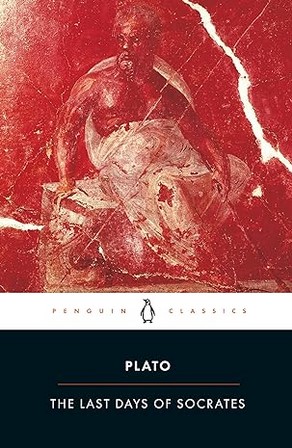
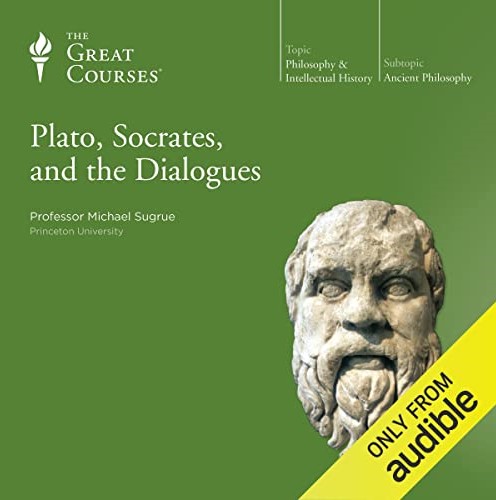

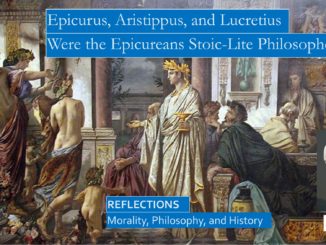
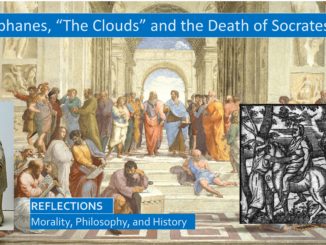
4 Trackbacks / Pingbacks